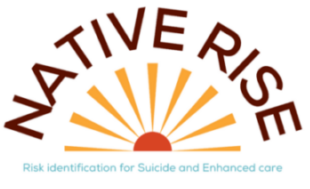
Native Americans experience suicide rates that are 3.5 times higher than the general population, an inequity that has worsened during the COVID-19 pandemic. This inequity is rooted in a legacy of colonization, attempted genocide, historical trauma, and ongoing injustices. To address this, Native American communities have exercised their sovereignty to support some of the most innovative, practical, and effective approaches to suicide prevention.
In 2017, the White Mountain Apache Tribe and the Johns Hopkins Center for Indigenous Health (CIH) partnered to figure out how the Celebration Life program, a local suicide surveillance and case management system, could ensure it reached individuals at highest risk with the right kind of care. As part of this work, CIH conducted pilot work to assess the accuracy, acceptability, and feasibility of NATIVE-RISE. NATIVE-RISE uses machine learning methods to enhance risk identification and reduce provider burden through risk stratification. Initial findings from this approach showed a high level of accuracy, acceptability and feasibility, and led to reduce risk for the highest risk individuals.